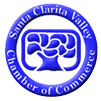The Federal Trade Commission is banning hidden fees charged for event tickets and hotel stays, the agency announced Tuesday, Dec. 17, citing a recent rise in customer complaints of bait-and-switch pricing.
The Junk Fees Rule, passed on a four-to-one vote, forbids ticket sellers and short-term lodging businesses from charging more fees than they initially advertise.
“People deserve to know up-front what they’re being asked to pay, without worrying that they’ll later be saddled with mysterious fees that they haven’t budgeted for and can’t avoid,” FTC Chair Lina M. Khan said in a press release.
The rule will end “junk fees around live event tickets, hotels and vacation rentals,” Khan said. The agency estimates that the effort will save Americans tens of billions of dollars, and around 53 millions hours spent each year searching for the total price.
Khan called on state and federal lawmakers to bolster the agency’s efforts by passing legislation “that bans unfair and deceptive junk fees across the economy.”
In recent years, customers have complained about “bait-and-switch pricing,” the FTC said in the text of the rule: “Consumers have cried foul when they discovered the cost of their hotel stays were significantly higher than expected due to a mandatory, hidden ‘resort fee,’ typically charged for services that consumers expected to be a part of staying in a hotel.”
When buying event tickets, some have complained that the ticket price almost doubled by the time they finished checking out, and that convenience or processing fees are vague and misleading. “These practices are frustrating for consumers when they shop for travel and entertainment especially because these purchases can be significant expenditures,” the FTC wrote.
Rebeca Kelly Slaughter, a Democratic commissioner, said in a concurring statement that she wished the FTC had gone further.
Democrats on the FTC initially intended to apply the rule to housing, restaurants, car rentals, loans, healthcare and other retail.
“I believe that finalizing this narrow rule is well supported by the law and the rulemaking record — and better than having no rule at all. But, to be clear, I believe that the commission could have done more to protect all Americans,” Slaughter said.
Khan agreed, arguing that bait-and-switch advertising harms honest businesses that are upfront with consumers across industries.
“Both the public comments and the FTC’s own enforcement experience highlight that junk fees are pervasive across sectors, including in areas like housing — where renters can be on the hook for thousands of dollars more per month than the sum they thought they’d be paying,” she said. “People budgeting for every-day necessities do not deserve the stress of wondering whether the price they see is honest.”
Yet the broader version of the rule may not have swayed the majority of the commission, which consists of three Democrats and two Republicans. Republican Melissa Holyoak joined the Democrats to vote for the measure, despite disagreeing with some of the its language.
“Had the commission ignored the serious legal questions presented by an economy-wide proposed rule, I would have voted against it,” Holyoak wrote in a concurring statement. “Fortunately, the commission heeded commenters’ concerns and substantially narrowed the final rule, focusing only on specific and prevalent unfair or deceptive practices in live-event ticketing and short-term lodging.”
Holyoak said another reason she supported the rule was that it doesn’t stop businesses from adding fees; it only dictates when they reveal those charges to consumers.
Republican Andrew Ferguson dissented from the majority, but his focus wasn’t on the rule’s merits. He argued that with President-elect Donald Trump set to take office, the Democratic-controlled commission should take the back seat.
“The Democratic majority’s four-year regulatory assault on American businesses has hindered economic growth and increased costs to the American consumer,” Ferguson wrote in his dissenting statement. “The American people resoundingly rejected this approach at the ballot box in November.”
Ferguson emphasized that the rule would not take effect until President Joe Biden leaves the White House.
“This lame-duck commission should give its regulatory pen a much-needed rest, focus on routine law-enforcement, and prepare for an orderly transition,” Ferguson said. “It is particularly inappropriate for the Biden-Harris FTC to adopt a major new rule that it will never enforce.”
The FTC says it received more than 60,000 public comments as part of the rulemaking process.
Live Nation Entertainment and its subsidiary Ticketmaster North America submitted comments in favor of the rule, but noted that it could disadvantage some without proper enforcement.
“While Live Nation supports all-in pricing and requires such pricing at its venues and festivals, the current market realities present barriers to implementing all-in pricing on a nationwide basis,” the company said in its comment.
Live Nation continued, “If Ticketmaster implements all-in pricing but other ticketing marketplaces do not, it risks losing site traffic and, ultimately, sales because such other platforms can list a lower price upfront to draw in consumers, even if their final price once fees are added is higher than the price offered by Ticketmaster.”
The Competitive Enterprise Institute, a nonprofit advocacy group that focuses on regulatory policy from a pro-business perspective, argued that the rule violates the First Amendment. The organization pointed to advertisements that disclose that the list price is not the final price.
“The proposed rule will go beyond the FTC’s authority and into First Amendment-protected speech when applied in a number of predictable contexts,” the institute commented. “The advertisement is not deceptive to the consumer: it presents only truthful and accurate information that would not cause a consumer to believe any inaccurate information.”
The National Association of Residential Property Managers submitted comments against the junk fee label.
“Housing providers do not charge ‘junk fees,'” the landlord organization commented. “Rather, they charge fees for legitimate business reasons and to help cover the costs of concierge-type services or benefits the resident or property owner opts into.”
Like this:
Like Loading...
Related





 Tweet This
Tweet This Facebook
Facebook Digg This
Digg This Bookmark
Bookmark Stumble
Stumble RSS
RSS




























REAL NAMES ONLY: All posters must use their real individual or business name. This applies equally to Twitter account holders who use a nickname.
0 Comments
You can be the first one to leave a comment.